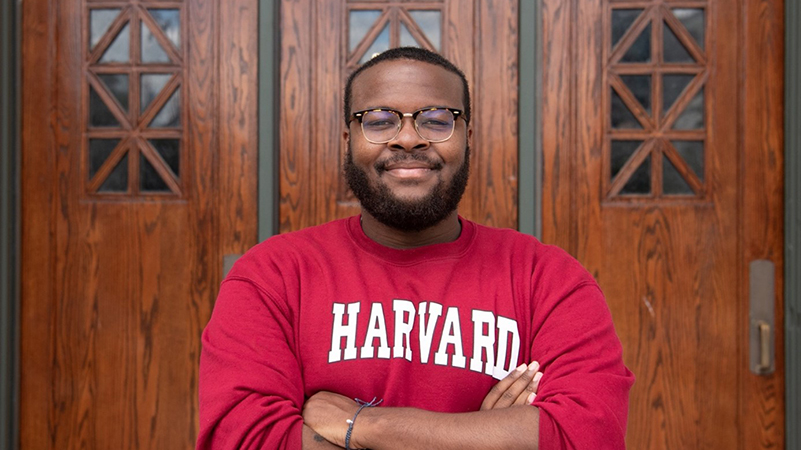I study how the brain’s dopamine system helps control movement. Dopamine’s effects on movement are usually thought to happen gradually, based on whether a behavior is rewarding or not. However, our lab has found that dopamine can influence movement almost instantly, with effects that last for a while. My research focuses on understanding the cellular mechanisms behind these fast, yet persistent, effects.
photo by Celia Muto.
What are the big questions driving your research?
The major questions driving my research are “How is dopamine able to quickly yet persistently influence the frequency and speed of movement” and “What is the cellular mediator of these effects?”.
What is the first experiment you remember doing?
During my undergraduate degree at Morehouse College, I worked under Dr. Jeffery Handy, where we investigated the effects of obesity on cancer cell resistance to anti-cancer therapeutics. My experiments involved treating prostate cancer cells with anti-cancer drugs in the presence of obesity-related hormones. This experience was the first time I was completely independent in my experimentation and was foundational in my development as a scientist.
What is the trait you most admire in others?
One of the traits I admire most in others, especially here at Harvard, is dedication. From the classroom, to seminars, to lunchroom chats, seeing people so in love and dedicated to their work is awe-inspiring and motivates me to dedicate myself even more. I also enjoy the collaborative spirit present among my colleagues at Harvard Medical School. In my opinion, half the fun of science is sharing your science with others. I’m quite fortunate to be in a space where discussing each other’s science is the norm.
What are your hopes for the future?
Ideally, in the future, I would be running a research laboratory investigating decision-making and movement. Beyond that, I hope to aid young scientists on their journey through science. Some of my best experiences thus far in my career are working with other students and helping them develop their scientific skills.

